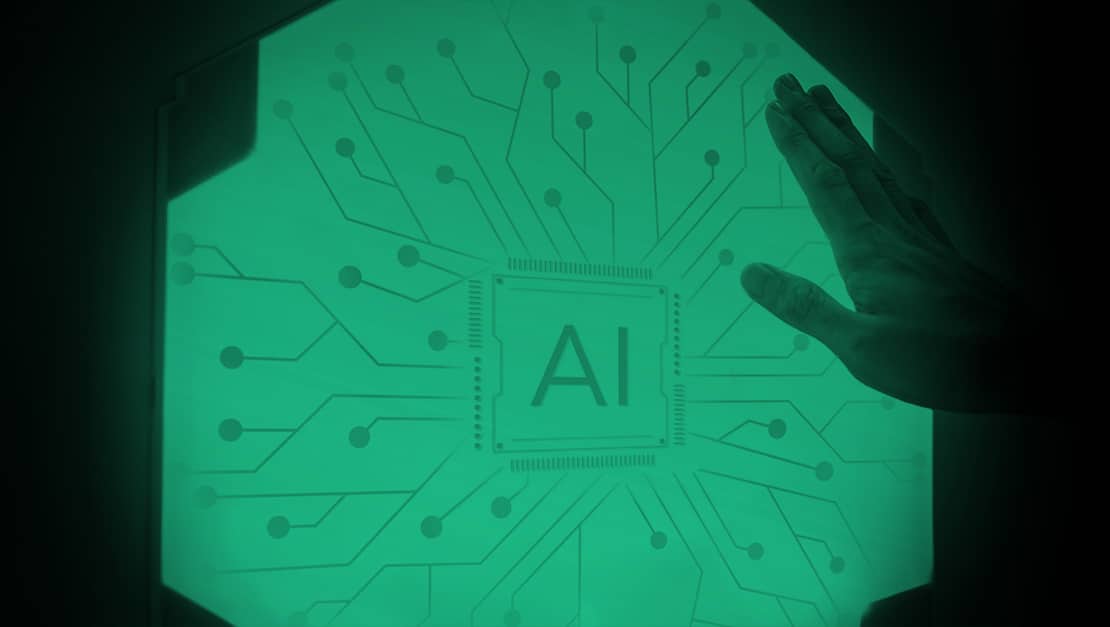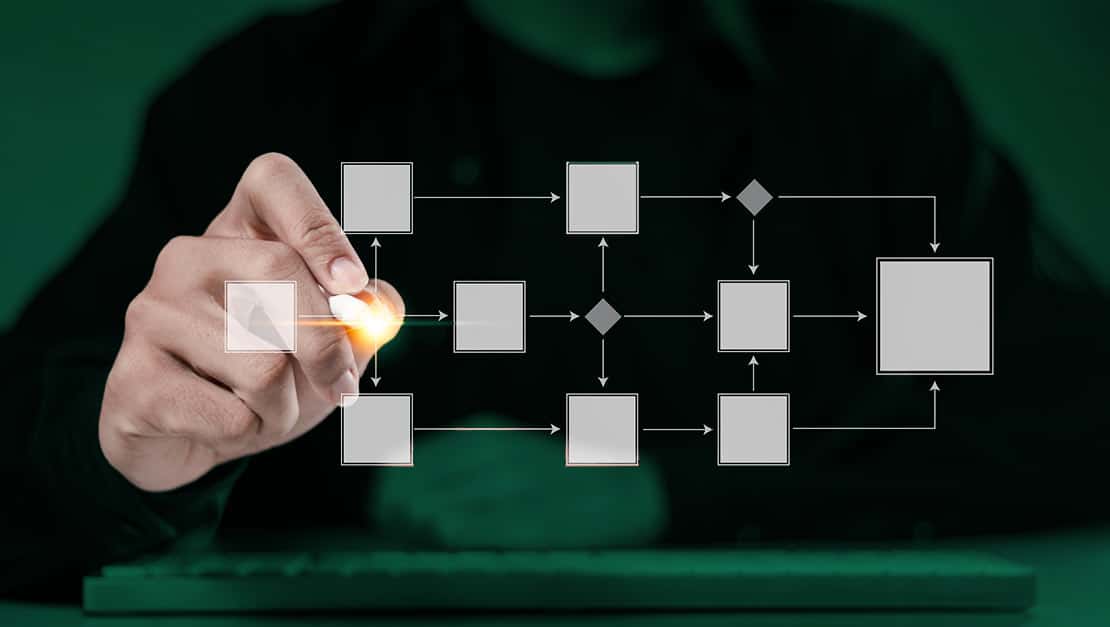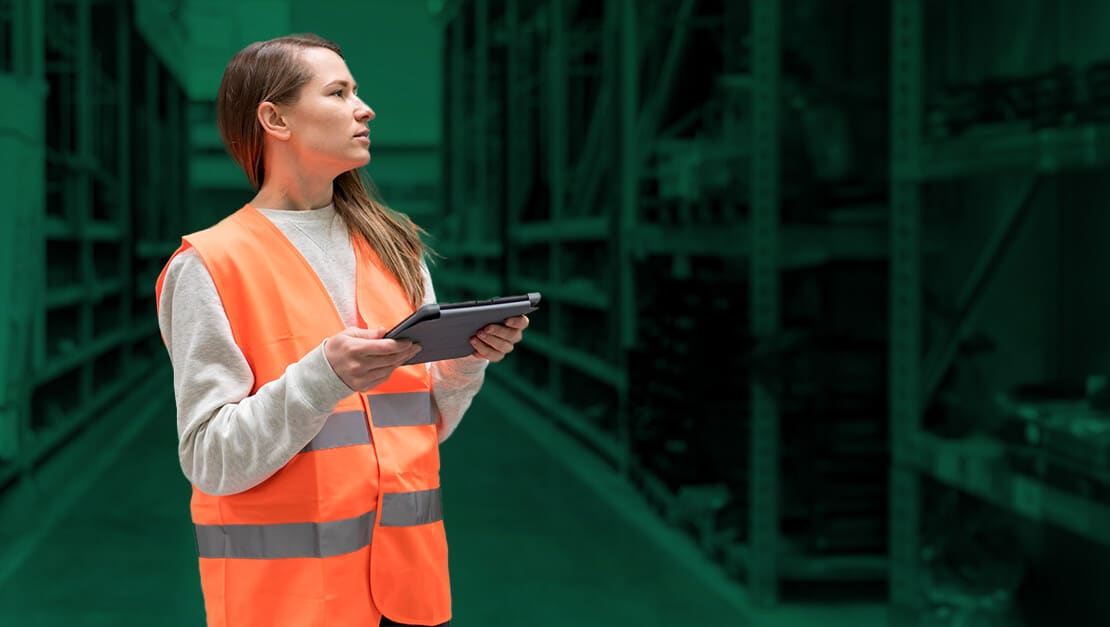In the past couple of years alone, with the emergence of generative artificial intelligence (AI), we’ve seen the power this technology has in many different fields. While traditionally perceived as a tech-focused tool, AI rapidly breaks boundaries into new industries, such as education, healthcare, transportation, manufacturing, and more.
This shift emphasizes AI’s role in shaping the future of how we work and interact with technology. AI’s growing capabilities are not only making it a more transformative technology but also one that’s accessible to more and more people.
Some companies, like aiOla, are changing the game and bringing AI to new industries, enabling companies to harness the power of this technology to empower employees in multiple fields. By giving organizations the ability to automate workflows and gather data through speech, aiOla is removing the barrier to accessible AI.
In a recent interview with Devico Breakfast Bar, Amir Haramaty, aiOla’s founder and CEO, chats about how future trends in AI show how it will be a tool for everyone, not only data scientists or tech companies. In this blog, we’ll explain more about what aiOla does and how our platform is democratizing AI for the greater good.
aiOla: Bridging the Gap
aiOla is a speech-powered AI platform that allows organizations to streamline workflows and collect otherwise lost data through speech. By combining various speech-based technologies like natural language understanding (NLU) and automatic speech recognition (ASR), aiOla has built a platform that’s easy to use without any technical know-how.
As it understands over 100 languages including multiple accents, dialects, and industry-specific jargon, aiOla can help bridge the data gap experienced by multinational teams. Whether employees speak different languages or are spread across various global locations, aiOla enables them to complete workflows using speech, while managers can collect speech-based data that can help them make critical business decisions.
With an easy-to-use interface and entirely hands-free operation, aiOla makes AI accessible to anyone on any team, even employees with disabilities. Since aiOla operates entirely through speech, employees can keep their hands free to work on the task at hand, while having an AI tool to assist with manual or repetitive tasks, such as inspections, data collection, or monitoring workflows.
aiOla in Action: Real-world Applications
aiOla is striving to bring AI into traditional industries, demonstrating the power of this technology and showing how it’s not reserved solely for tech companies. By integrating AI systems like aiOla’s into existing workflows, traditional industries can gain access to mission-critical data, enabling them to grow and scale operations while producing results that are safer and more accurate. Let’s take a look at how this works in action in three different industries.
Food Manufacturing
aiOla’s speech-powered technology enables food manufacturers to work smarter while ensuring the safety of their employees and food products. With aiOla, food companies can gain real-time insight into their production line while ensuring hands-free operation for a safer work environment.
A Fortune 50 American food corporation was conducting inspections the traditional way, in other words, manually jotting down findings on paper. This process doesn’t allow them to quickly gather and analyze important data. However, when the company introduced aiOla to its workflows, it was able to reduce inspection time by almost half while also enabling instant alerts for machinery malfunctions. This led to a 30% increase in production uptime, allowing the company to work more efficiently.
Fleet Management
When it comes to managing a fleet with many vehicles to monitor and drivers in different locations, collaboration and efficiency are key. aiOla enables fleet management companies to expedite vehicle inspection time and gather data on driver habits while ensuring they keep their eyes on the road with hands-free technology to collect information.
A global shipping courier was using paper-based manual inspections to go over each vehicle before deliveries. Each vehicle took 15 minutes to inspect, and data wasn’t collected in real time, leading to a lack of communication with mechanics. Once aiOla was implemented, inspections were reduced by a staggering 85% down to just 60 seconds per vehicle. Additionally, with aiOla’s ability to gather and process essential data through speech, mechanics received immediate alerts, which further reduced wait times.
Logistics and Warehousing
In warehouses, safety and efficiency come first, but it can be difficult to achieve high levels of either with traditional manual workflows. aiOla enables logistics and warehouse teams to reduce errors in data entry while simultaneously keeping operations hands-free to boost safety. Additionally, the instant collection of speech data leads to better transparency and instant decision-making in an industry where time is of the essence.
A Fortune 200 drink and brewing company maintains a 24-hour production cycle with many workers around the clock. Between alternating shifts, workers were struggling to relay critical information on inventory discrepancies, malfunctioning machinery, or other information. This lack of communication led to lost time and data. With aiOla, workers could share updates through speech, alerting necessary managers to potential issues or incidents and capturing otherwise lost data. Aside from connecting data across multiple teams, the number of processed pallets per hour increased by 25% and the company saw a reduction in safety issues per shift.
The Importance of User-Friendly AI
User-friendly and pragmatic AI technology ensures that the power of AI is harnessed across diverse industries. By breaking down entry barriers by making platforms easy to onboard, AI companies like aiOla are making advanced technology accessible to broader audiences.
While the behind-the-scenes of how AI systems like aiOla’s work may be complex, the user interface presents a simple and streamlined experience, enabling individuals with varying technological backgrounds and skill levels to take advantage of its capabilities. This democratization of AI allows professionals from different backgrounds to reap the benefits of AI in their work while also fostering further innovation and growth within traditional industries.
In his talk with Devico Breakfast Bar host, Oleg Sadikov, Haramaty recognizes aiOla’s ability to cater to a wide range of companies that can benefit from speech-based AI systems. “We can connect the power of AI and impact organizations regardless of where they are in their journey and regardless of how small or big they are,” says Haramaty.
Indeed, by removing the roadblock of extensive technical expertise, more industries and their workers can access user-friendly AI platforms. This access empowers workers to focus on creative and problem-solving tasks, leaving menial and repetitive work to AI algorithms. In turn, industries stand to gain from this increase in efficiency and accelerated productivity.
User-friendly and pragmatic AI solutions like aiOla have a rippled effect, extending far beyond basic task completion. By ensuring a workforce is equipped to operate in an AI-driven era, user-friendly AI tools act as a springboard for innovation and inclusion, making various fields more accessible to everyone.
AI in the Hands of All
Bringing AI to traditional industries isn’t only beneficial for companies, but has broader societal implications. Through the democratization of AI, technology is made accessible to more people, paving the way for innovation, creativity, and problem-solving. Whether large enterprises or individuals, making AI more accessible encourages anyone to take an active part in shaping the future of technology.
After seeing user-friendly AI in action, more communities will be empowered to apply AI-based solutions to unique challenges. According to a report by Gartner, generative AI has democratized access to learning and skills on both the corporate and individual levels. It’s projected that by 2026, over 80% of enterprises will be using generative AI APIs, up from just under 5% in 2023.
As a response to the growing call to democratize this technology, companies like Microsoft, Google, and Amazon have developed “no-code” tools for others to create models based on their personal needs without having any coding experience. Essentially, the growing trend of making AI technology more accessible will lead to higher rates of AI literacy and build-your-own software development.
Ethical AI Concerns and Challenges
With the widespread use of any technology, concerns are likely to arise. When it comes to AI democratization, there has been no shortage of criticisms that aim to shine a light on the potential downsides of making this technology too accessible. Some concerns include:
- The risk of opening AI modeling to everyone requires the establishment of AI standards to hold users accountable
- Users who lack the necessary expertise in AI development can impact adoption rates of new technologies, making AI seem less trustworthy to organizations
- Ethically, the issue of data security and privacy is a large concern as AI, machine learning (ML), and large language models (LLMs) collect sensitive information to train algorithms
- Another issue, bias, is a common concern in AI models, as data can be influenced by real-world bias and produce an inaccurate result
- Any AI concern can create regulatory issues leading to legal action in the event data, AI models, or platforms aren’t handled responsibly
AI companies like aiOla need to consider the major challenges that arise with using this type of technology and approach it in a way that complies with various international regulations, such as GDPR. While the overall concern of the ethical use of AI isn’t solved yet, according to Haramaty, aiOla is committed to the responsible use of not only its own product but all AI products, as well as the future of democratized AI solutions.
Looking Ahead with aiOla
There’s a lot of excitement on the horizon when looking at the future of AI. As technologies have made leaps and bounds in the last few years alone, 2024 is set to be a significant year for AI. In the interview, Haramaty says that while AI saw massive hype in 2023, looking to 2024, the technology will mature and focus less on gimmicks and more on “practical solutions that AI can support to help organizations do more with less.”
With aiOla breaking barriers in traditional industries and making AI more accessible to a wider variety of companies, we have no doubt that we will continue pushing boundaries to make our AI platform indispensable to even more industries, like aviation, pharmaceutical, healthcare, and many more.
Book a demo with one of our experts to learn more about how aiOla can transform your business operations.








